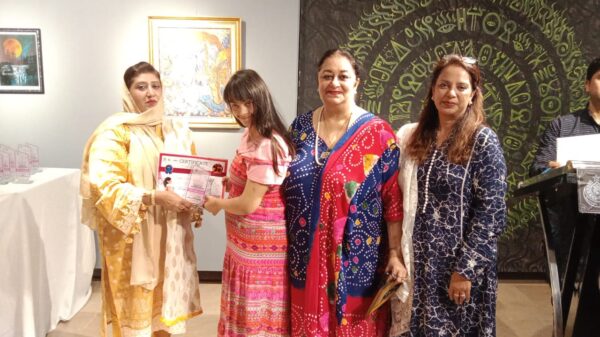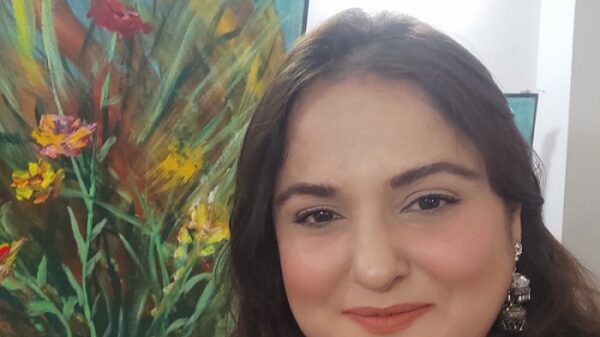Karachi: Torture does not always leave physical marks,” says Yumna Rizvi, who co-produced a short film about torture with Anya Raza. “But its impact stays with the victim for the rest of his or her life.”
Still Here is a short film that depicts the journey from trauma toward healing. It is inspired by clients of the US Center for Victims of Torture and survivors of torture from across the globe. For many years, CVT has been seeking accountability for US torture and to close the Guantánamo Bay prison.
The two filmmakers believe that through multi-disciplinary healing, survivors “are able to create new, happy memories and live productive lives”.
The film begins with a victim dipping brush in the water and putting blue color on canvas. The blue color representing water.
“I loved to swim. It made me feel free. I crossed the water to get there. “It was dark. I never saw it coming.”
The victim seems to be one of those lucky immigrants who succeed in crossing the sea route to Europe. Many do not.
“Deaths at sea on migrant routes to Europe almost double, year on year,” says a UN 2022 report. More than 3,000 people dying or go missing while attempting to cross the Mediterranean and the Atlantic last year. Of the 2021 total, 1,924 people died or went missing on the Central and Western Mediterranean routes. While an additional 1,153 perished or went missing on the Northwest African maritime route to the Canary Islands.
“I was thirsty one moment. The next I was drowning. And they watched. They wouldn’t stop,” said the “Still Here” survivor.
“Most of the sea crossings took place in packed, unseaworthy, inflatable boats. The boats would often capsize or deflated resulting in the loss of life,”
“I never even saw the water. I could only feel it. Cold. Wet. Overwhelming. Some days, I feel like I am still drowning. Pushed to depths,” the victim said.
This was also a veiled reference to waterboarding practiced at the Guantanamo Bay US prison camp in Cuba where prisoners were often tortured to extract information from them.
The UN Convention Against Torture outlaws torture. Both United States and Pakistan are its signatories, but both allow this practice at their prisons.
The CVT film remind the viewers that “freedom from torture is among the most fundamental human rights”. The film is a creative depiction of a journey that is difficult and complex. “We hope this film is helpful for people to understand that journey,” the filmmakers said.
Amnesty International appreciated the film’s effort to highlight torture and shared it on the social media.
“Our clients tell stories of escaping from persecution and crossing rivers and oceans,” said Yumna Rizvi. She recently visited Guantanamo Bay to attend the trial of remaining prisoners, including two Pakistanis.
“As we approach 2023, we encourage the Biden administration to stick to its promise and responsibly close Guantanamo,” said Rizvi. She is a policy analyst at CVT. “We encourage them to support asylum-seekers and refugees coming into the United States.”
Anya Raza said she used a research-based approach and studied the stories of torture survivors closely for a year to write the script.










